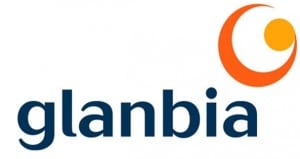
World Youth Skills Day: Investing in Ireland’s digital future
World Youth Skills Day, which falls today, highlights the importance of equipping young people with the necessary skills for employment and entrepreneurship, and the value of continued development and training programmes to bridge skills gaps.
The theme for 2021 is reimagining youth skills post-pandemic to celebrate young people’s resilience over the last year as we look to the future.
In an effort to overcome the skills gap in Ireland’s ICT sector, Datapac has been working closely with second and third-level institutions since 2004 to provide opportunities for students and graduates, and to cultivate youth skills In Ireland. Current recruitment strategies that recycle talent in the existing pool are unsustainable – to sustain a thriving indigenous technology industry and remain competitive for the global technology organisations we seek to attract and retain, the focus needs to be on widening the talent pool.
IT skills shortage – a global issue
Youth unemployment is a worldwide issue that has escalated due to the Covid-19 pandemic, rising to 14.6% in 2020, according to the International Labour Organisation (ILO). Lack of skills, particularly in ICT, continues to be an obstacle as the demand for talent is growing faster than people can be trained. In 2020, the World Economic Forum identified that Europe had a shortage of 756,000 ICT professionals, while the European Commission highlighted that less than half of adults have the digital skills needed for 90% of roles in the future.
Like the rest of Europe, Ireland has a significant IT skills gap, and a 2020 study found that 42% of Irish people describe themselves as ‘below average’ for digital skills. This gap means Irish organisations cannot grow or scale in the way they would like, especially with the digital and hybrid workplaces of the future. While it is positive to see some organisations embrace training and development programmes to digitally empower their workforce, the skills shortage in Ireland is a much larger issue that requires the solution to be extended outside of organisations and tackled at a grassroots level.
It is necessary to instil digital learning from a young age to ensure the success of Ireland’s digital economy. Encouraging more students, especially girls, into taking STEM subjects and courses will also be vital to ensuring a well-rounded and balanced IT workforce.
Tackling the skills gap
Datapac is committed to nurturing and developing ICT talent and working closely with the education sector to address the skills shortage. Our Transition Year placements introduce young people to the sector and offer real-world experience to encourage students to consider IT as a career path, while our college work placement programme gives third-level students practical experience in the field with hands-on mentoring to enhance their learning. To date, Datapac has invested over €1.7 million in its student work placement programme, and almost 170 individuals have successfully passed through our doors.
Datapac’s Graduate Development Programme is designed to give new graduates a comprehensive overview of our business within the industry to identify interests, strengths, and weaknesses, with a view to specialising later. A key benefit of the programme is that participants work with multiple teams on varied assignments within their chosen discipline, which allows for greater exposure and a well-rounded learning experience.
The programme has two tracks, covering the areas of technology and business. The Information and Communications Technology (ICT) stream exposes the graduate to the latest innovations from global technology leaders across areas such as end-user applications, network and security, and infrastructure and cloud services. It also provides an excellent foundation in customer service and IT Service Management principles and best practice. The more commercially-focused Business Development (BD) track develops skills across relationship-building, new business acquisition, administration and account management.
The programme is available in Datapac’s award-winning Enniscorthy premises, in addition to its Dublin office and primary distribution hub, to encourage the development of the digital workforce as well as expanding opportunities regionally. The programmes operate in partnership with Waterford IT, IT Carlow, TU Dublin, University of Maynooth, University of Limerick, and Trinity College.
The programme prepares participants for full-time employment with continuous training and a long-term focus on developing a career, and all graduates are assured of having had the opportunity to complete at least one, but usually more, multiple-industry-recognised accreditations.
Conclusion
What started as a CSR initiative to offer work experience for students has grown into a key element of Datapac’s talent development strategy. Our programmes focus on attracting talent to widen the pool with a nationwide focus.
Datapac is committed to developing the next generation of IT workers in Ireland and narrowing the ever-present skills gap, by offering invaluable training and experience to those interested in pursuing a career in the sector.
We are now recruiting for the second intake of 2021 for our Graduate Development Programme, having successfully onboarded 10 graduates in the first half of the year.
For more information, visit www.datapac.com and follow us on Twitter and LinkedIn to stay updated.
Siobháin O’Connor, Talent Manager, Datapac
Image credit: Hannah Busing
Register for upcoming events
-
 "At Barretstown, we rebuild the lives of children, and their families, affected by childhood cancer and other serious illnesses. We serve 5,000 campers a year and have 1200 volunteers each year. Communication is crucially important and Datapac has helped us to streamline, improve and ensure efficiency."
"At Barretstown, we rebuild the lives of children, and their families, affected by childhood cancer and other serious illnesses. We serve 5,000 campers a year and have 1200 volunteers each year. Communication is crucially important and Datapac has helped us to streamline, improve and ensure efficiency." -
 "Datapac has provided us with a fantastic product and world-class levels of service and support. Whenever people ask me about our experience with Datapac I’m always ready to sing their praises and I would happily recommend their services to any organisation."
"Datapac has provided us with a fantastic product and world-class levels of service and support. Whenever people ask me about our experience with Datapac I’m always ready to sing their praises and I would happily recommend their services to any organisation." -
 "For many years Datapac has been our sole supplier for the maintenance of Personal Computers and Peripherals in Ireland. Through their Service Centres in Wexford and Dublin, Datapac provides excellent support to our businesses throughout the country and consistently meets the SLA targets which we have set. The skill, expertise and experience of their engineers and other technical support personnel are of the highest standard."
"For many years Datapac has been our sole supplier for the maintenance of Personal Computers and Peripherals in Ireland. Through their Service Centres in Wexford and Dublin, Datapac provides excellent support to our businesses throughout the country and consistently meets the SLA targets which we have set. The skill, expertise and experience of their engineers and other technical support personnel are of the highest standard." -
 “The value of dealing with an HP Gold partner in this process can’t be underestimated. Datapac provide us with a local touch and can cover the full range of our IT requirements, but when there is a specific technical requirement like this, they can bring the specialist technical resources of HP to the table. HP and Datapac had a thorough discussion with us around our requirement - and had really done their homework - and then were able to provide us with a very highly specified test platform for us to prove the application on before we committed to purchase.”
“The value of dealing with an HP Gold partner in this process can’t be underestimated. Datapac provide us with a local touch and can cover the full range of our IT requirements, but when there is a specific technical requirement like this, they can bring the specialist technical resources of HP to the table. HP and Datapac had a thorough discussion with us around our requirement - and had really done their homework - and then were able to provide us with a very highly specified test platform for us to prove the application on before we committed to purchase.” -
 Datapac understands our needs and requirements and has the expertise and experience to follow through on all our requests. Our constant need to reduce costs has been assisted by Datapac's ability to suggest alternative solutions and methods whilst improving both efficiency and productivity. Our partnership with Datapac is akin to having an IT department on site that we simply could not provide ourselves.
Datapac understands our needs and requirements and has the expertise and experience to follow through on all our requests. Our constant need to reduce costs has been assisted by Datapac's ability to suggest alternative solutions and methods whilst improving both efficiency and productivity. Our partnership with Datapac is akin to having an IT department on site that we simply could not provide ourselves.